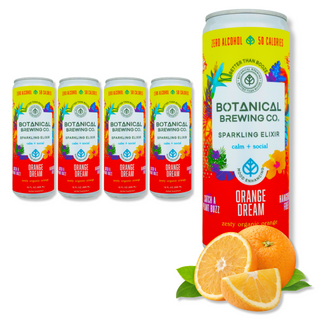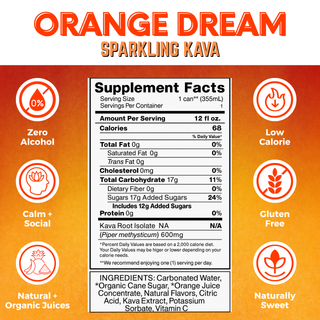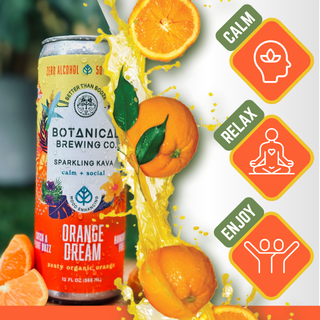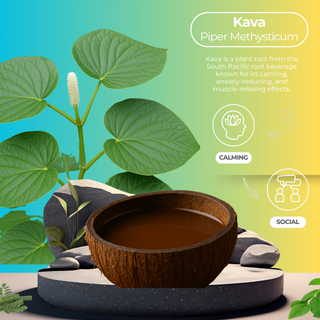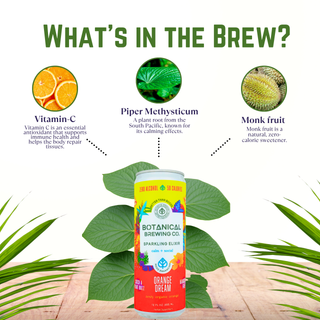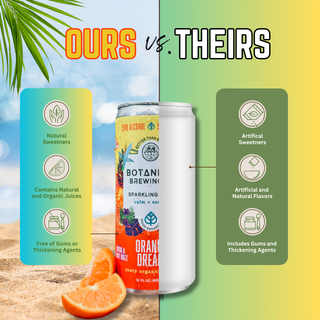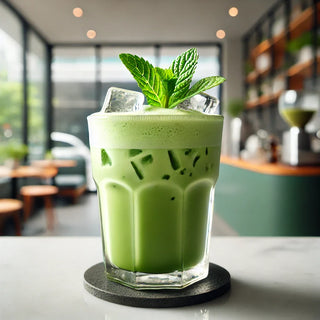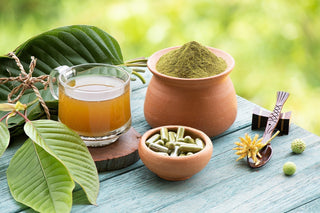Kava, the ancient Polynesian beverage known for its relaxing properties, has gained popularity worldwide in recent years. As more people discover this traditional drink, it's essential to understand that not all kava is created equal. The various types of kava offer unique experiences, flavors, and effects, making it a fascinating subject for both newcomers and seasoned enthusiasts.
In this article, we'll dive deep into the diverse world of kava, exploring its different varieties and what makes each one special. Whether you're a curious first-timer or a kava connoisseur looking to expand your knowledge, understanding the different types of kava can enhance your appreciation for this remarkable plant and help you choose the perfect variety for your needs.
Understanding Kava Varieties: Noble vs. Tudei and Chemotypes
When exploring the different types of kava, it's crucial to understand the distinction between Noble and Tudei varieties. Noble kava is generally considered the gold standard, prized for its balanced effects and smoother experience. In contrast, Tudei kava, named for its effects lasting "two days," is less favored due to its potentially stronger and longer-lasting impact.
The diversity among kava types extends beyond this basic categorization. Each variety has a unique chemotype, which refers to its specific kavalactone profile. Kavalactones are the active compounds responsible for kava's effects, and their varying compositions contribute to the distinct characteristics of different types of kava. This chemical diversity results in a wide range of flavors, aromas, and experiences, allowing kava enthusiasts to find the perfect match for their preferences and desired effects.

Types of Kava Based on Origin: A Global Tour
The various types of kava and their effects are often closely tied to their place of origin. Each region's unique growing conditions, traditions, and cultivation practices contribute to distinct kava varieties. Let's explore some of the most prominent kava-producing regions and their characteristic offerings:
- Vanuatu kava: Known for its potency and balanced effects, often considered the benchmark for quality kava.
- Fijian kava: Typically milder with a smooth taste, popular among beginners and those seeking a gentler experience.
- Tongan kava: Renowned for its strong effects and earthy flavor, favored by experienced kava drinkers.
- Solomon Islands kava: Often exhibits unique flavor profiles and effects, reflecting the islands' diverse ecosystems.
- Other regional varieties: Including Hawaiian, Samoan, and Micronesian kava, each offering its own distinct characteristics and cultural significance.
Understanding these regional differences can help kava enthusiasts appreciate the nuanced effects and flavors of various types of kava, enhancing their overall experience with this traditional beverage.
Types of Kava Based on Preparation: From Traditional to Modern
As kava's popularity has grown, so have the methods of preparing and consuming it. All types of kava originate from the same plant, but different preparation techniques can significantly alter the final product's potency, flavor, and ease of use. Let's explore the various forms of kava available today:
- Traditional root powder: The most authentic form, requiring kneading and straining to prepare. Offers a full-bodied experience and is favored by purists.
- Instant kava: A convenient option that dissolves easily in water, ideal for on-the-go use or those new to kava.
- Micronized kava: Finely ground kava that can be mixed directly with liquid, offering a balance between tradition and convenience.
- Kava concentrates and extracts: Highly potent forms that provide strong effects with smaller quantities, popular among experienced users.
- Kava teas: A milder option, often blended with other herbs for a more palatable taste and gentler effects.
Each preparation method offers a unique way to experience kava, allowing enthusiasts to choose the form that best suits their preferences and lifestyle. Understanding these different types of kava preparations can help users find their ideal method of consumption.
Best Types of Kava for Various Purposes: Tailoring Your Experience
Different kava varieties can offer distinct effects, making some more suitable for specific purposes than others. Understanding which type of kava works best for your needs can enhance your overall experience. Here's a guide to help you choose the best type of kava for various situations:
- For relaxation: Heavier varieties like Borongoru from Vanuatu or Lawena from Fiji are often considered the best types of kava for unwinding after a long day.
- For social gatherings: Lighter, more uplifting strains such as Kelai from Vanuatu or Fijian Waka can be ideal for fostering conversation and camaraderie.
- For sleep aid: Heavy kavas with higher concentrations of the kavalactone dihydrokavain, like some Vanuatu varieties, are often regarded as the best type of kava for promoting restful sleep.
- For anxiety relief: Balanced Noble kava varieties, such as Borogu from Vanuatu or certain Tongan kavas, are frequently recommended for their potential calming effects.
Remember that individual experiences may vary, and it's always best to start with smaller amounts when trying new types of kava. Experimenting with different varieties can help you discover the best types of kava for your specific needs and preferences.
How to Choose the Right Type of Kava: A Guide for All Users
Selecting the perfect kava can be a personal journey, as what type of kava is best often depends on individual preferences and needs. Whether you're new to kava or a seasoned enthusiast, here are some key factors to consider and tips to help you make an informed choice:
Factors to consider:
- Desired effects (relaxation, focus, social, sleep aid)
- Taste preferences
- Preparation method and convenience
- Potency and tolerance level
- Origin and quality of the kava
Recommendations for beginners:
If you're new to kava, start with milder, well-balanced Noble varieties. Fijian or Hawaiian kavas are often gentler and more palatable for newcomers. Consider instant or micronized kava for easier preparation. Always choose reputable vendors who provide detailed information about their products.
Tips for experienced users:
Experienced kava drinkers can explore stronger varieties from Vanuatu or Tonga. Experiment with different chemotypes to find what works best for your specific needs. Consider traditional preparation methods for a more authentic experience. Don't hesitate to blend different types of kava to create your perfect mix.
Remember, determining what type of kava is best for you may require some experimentation. Listen to your body, start with small amounts, and enjoy the process of discovering your ideal kava experience.

Conclusion: Your Journey into the World of Kava Begins
As we've explored throughout this article, the world of kava is rich with diversity and nuance. From Noble and Tudei varieties to regional differences and various preparation methods, there's a wealth of options to discover. Understanding what type of kava to get depends on your personal preferences, desired effects, and level of experience.
Key takeaways to remember: - Noble kava varieties are generally preferred for their balanced effects - Regional origins significantly influence kava's characteristics - Preparation methods can alter your kava experience - different types of kava may be better suited for specific purposes
We encourage you to embark on your own kava journey, exploring the various types and finding the perfect match for your needs. Whether you're seeking relaxation, social enhancement, or a sleep aid, there's a kava variety waiting for you to discover it.
Ready to start your kava adventure? Look no further than BotanicalBrewingCO's premium kava products. Our carefully curated selection offers a range of high-quality kava varieties to suit every preference and need.



